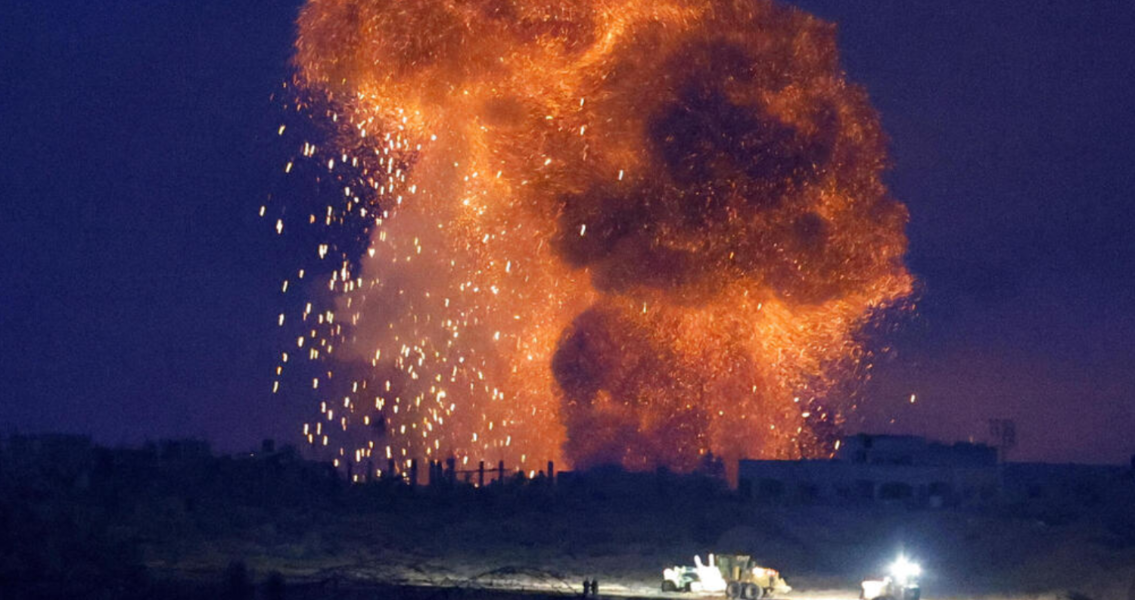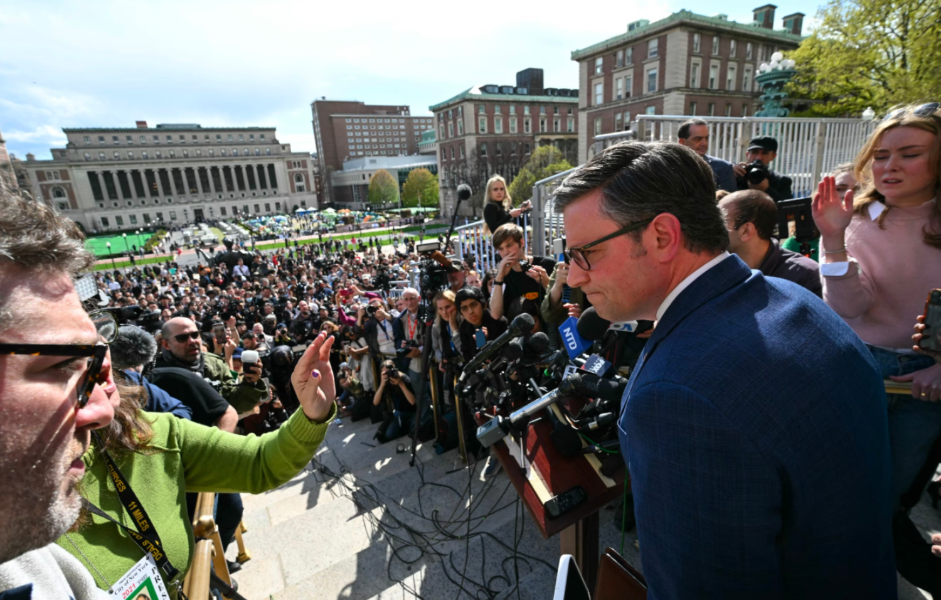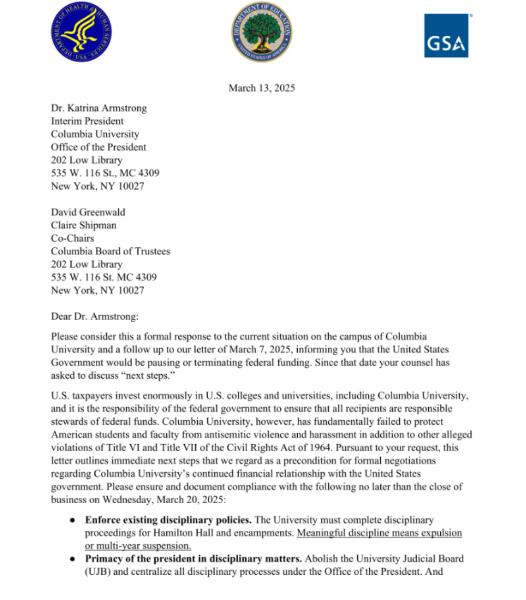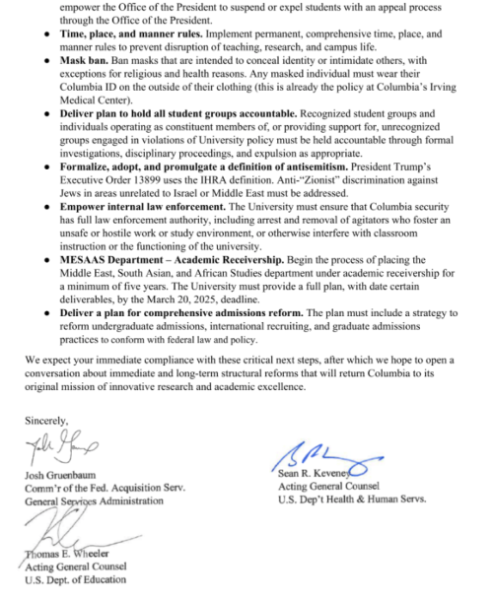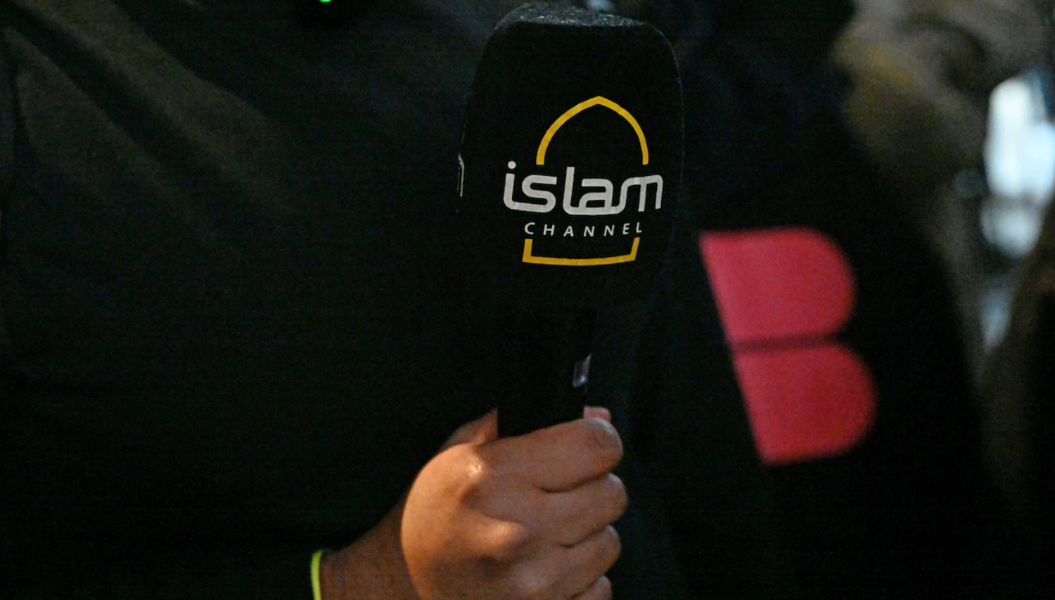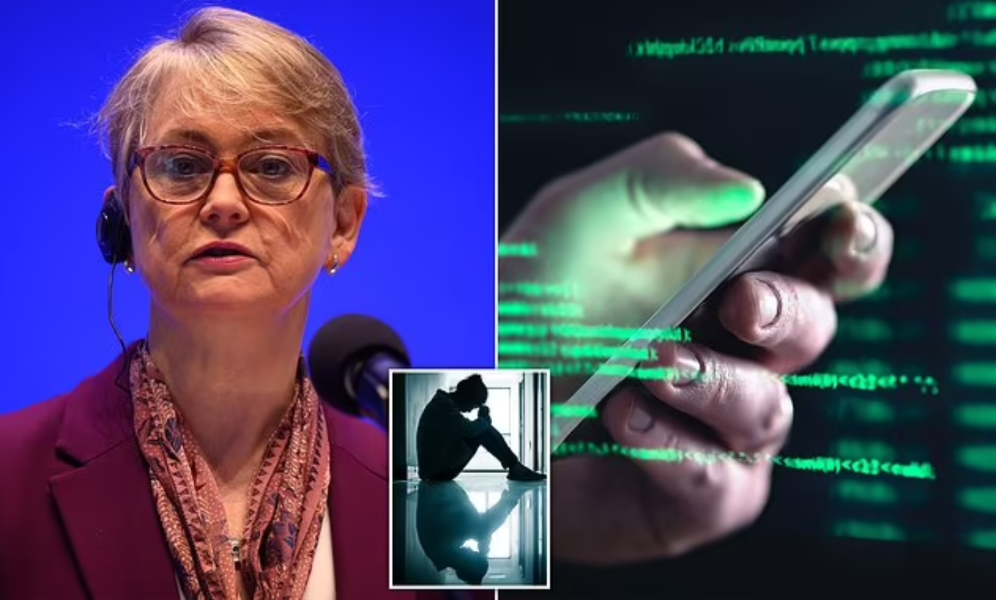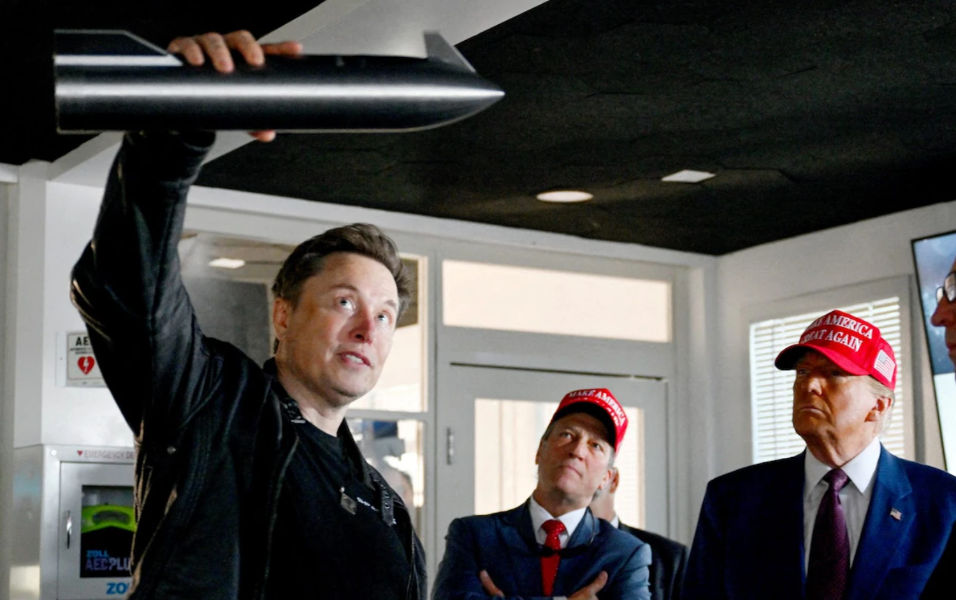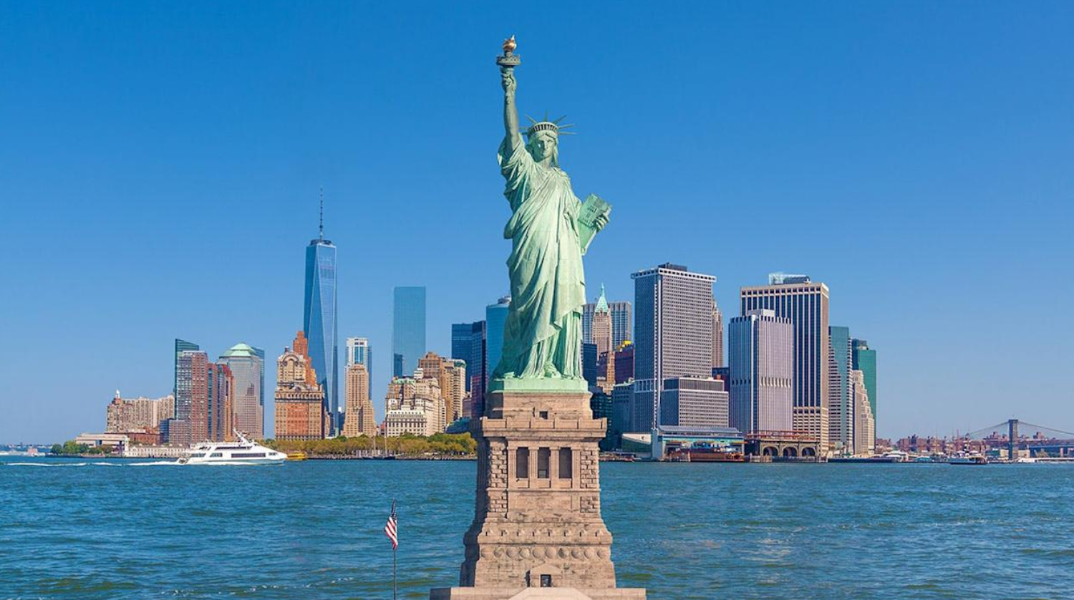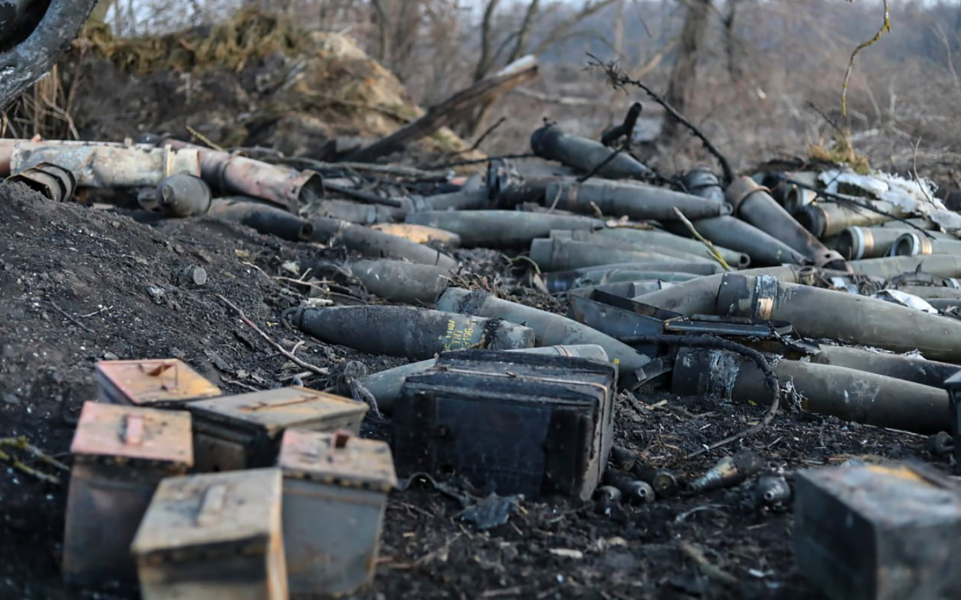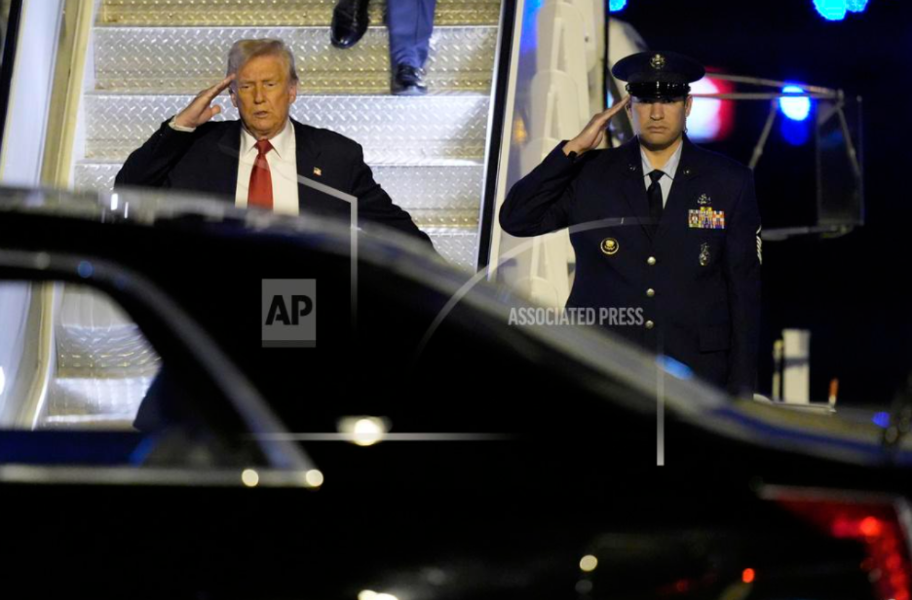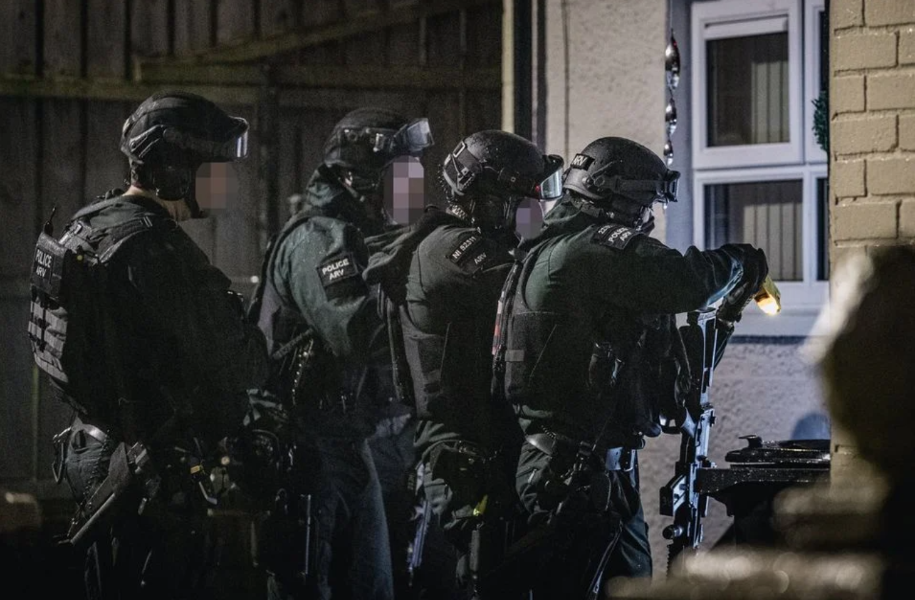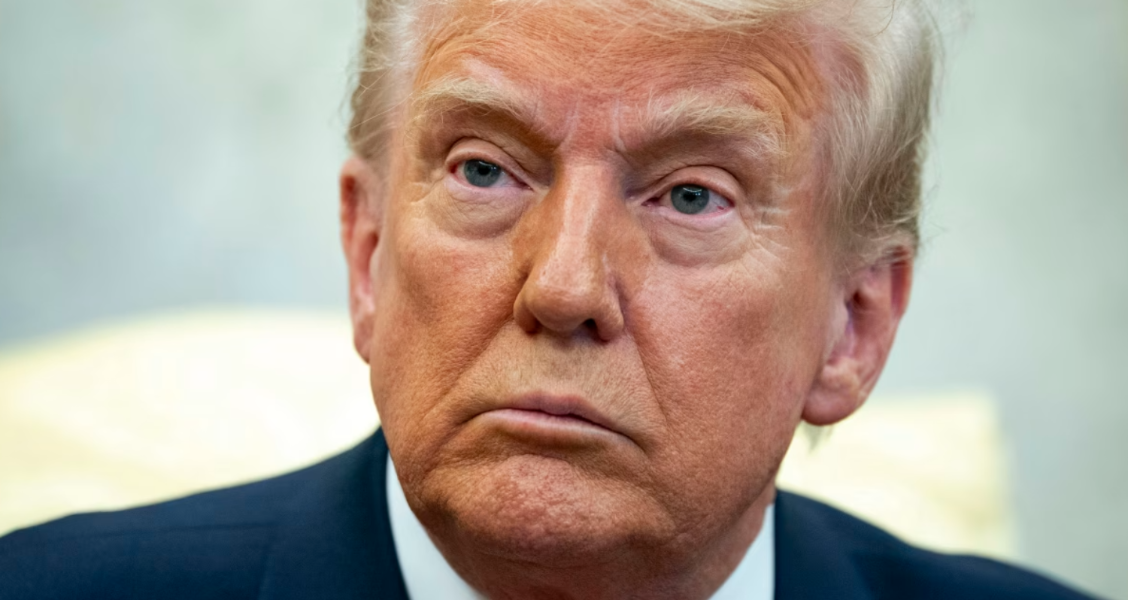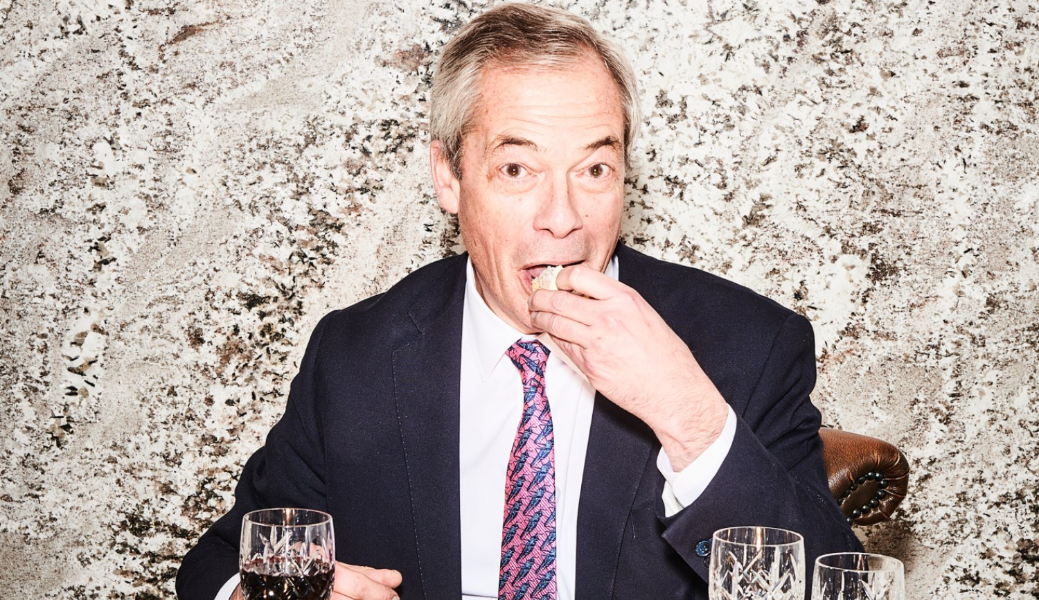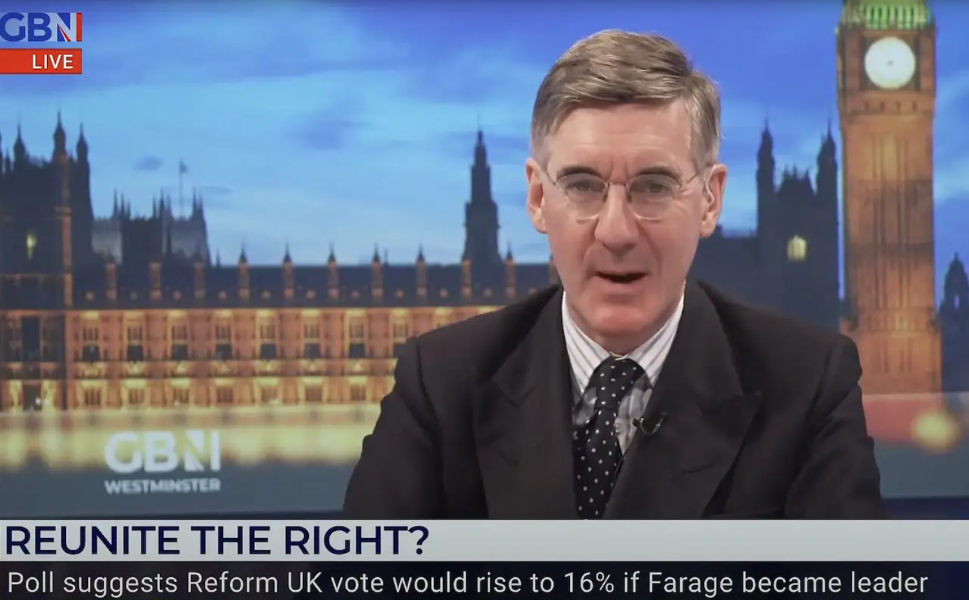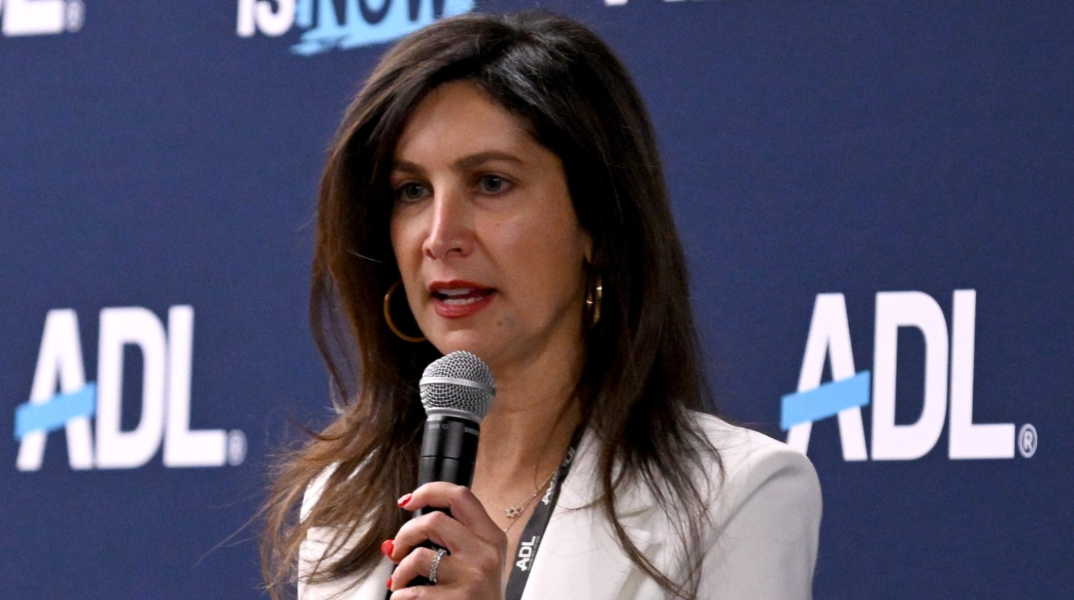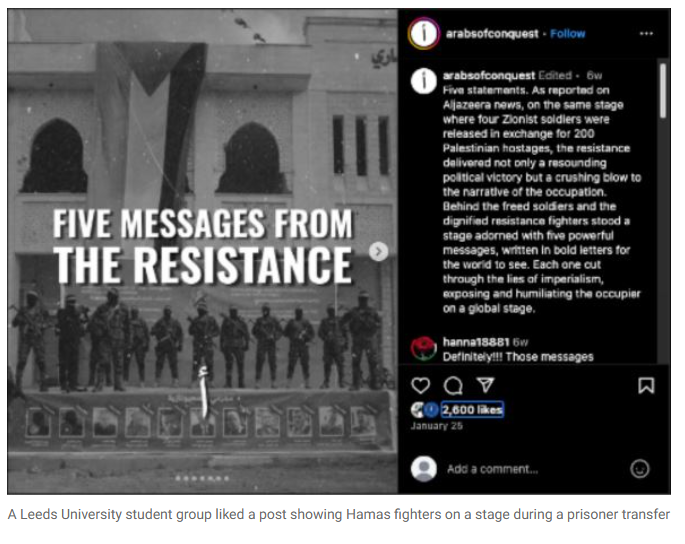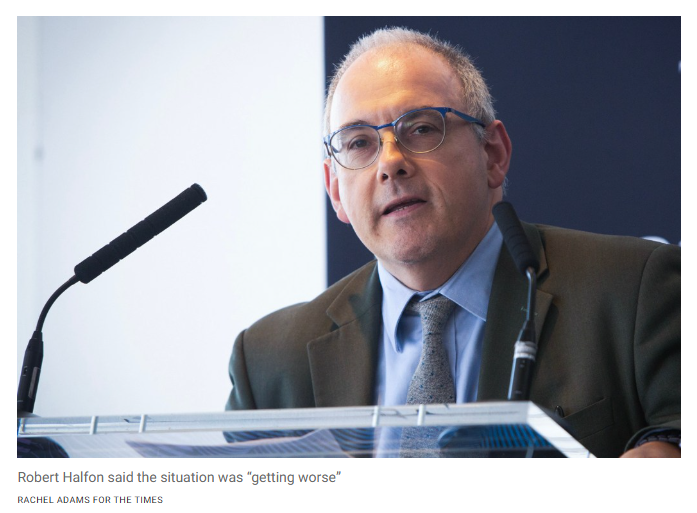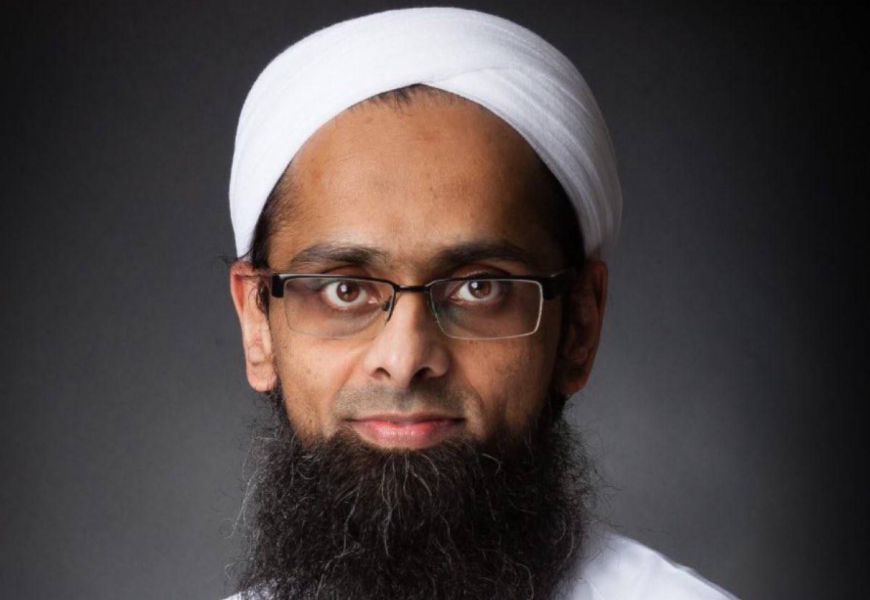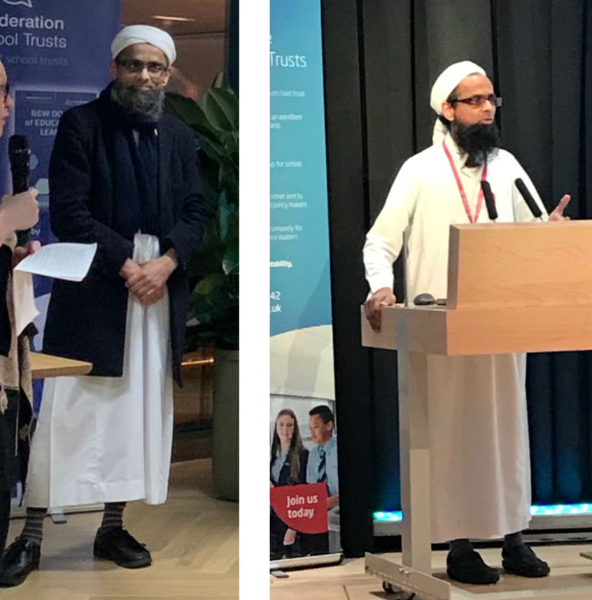-
Posts
10,807 -
Joined
-
Last visited
Content Type
Events
Forums
Downloads
Quizzes
Gallery
Blogs
Everything posted by Social Media
-

US deploys “overwhelming lethal force” against Houthis in Yemen
Social Media replied to Social Media's topic in World News
@sammieuk1 Posts using derogatory and toxic nicknames or intentional misspelling of people’s names will be removed. If you don’t want your post to be removed, spell people’s names correctly, this applies to both sides of the political debate. -
Israel's airstrikes on Gaza have resulted in the deaths of hundreds, as the Israel Defense Forces (IDF) issues warnings to residents in several areas, possibly signaling an expanded military offensive. Overnight, the IDF launched a surprise bombing campaign targeting Hamas, and in a post on X, the military's Arabic-language spokesman, Col. Avichay Adraee, shared a map of "dangerous combat zones" from which civilians should evacuate. These areas include Beit Hanoun, Khuza’a, and the Abasan suburbs of Khan Younis. "The White House was consulted by Israel on their attacks on Gaza tonight. President Trump was clear: Hamas, Houthis, all those who seek to terrorize Israel and the U.S. will pay a price. All hell will break loose." “The IDF has launched a strong offensive against terror organizations. These designated areas are considered dangerous combat zones,” Adraee stated. He urged civilians to leave immediately for known shelters in western Gaza City and Khan Younis. "Remaining in these areas puts your lives and the lives of your family members in danger," he warned. Gaza’s Hamas-run health ministry has reported conflicting casualty figures. An official statement from the ministry revised the death toll to 254, down from an earlier count of 310. However, the ministry’s head told AFP that at least 330 people had been killed. The official statement also reduced the reported number of injured from over 1,000 to 440. Two Hamas sources told AFP that among those killed was Mahmoud Abu Watfa, the head of the terror group’s interior ministry, which oversees police and internal security services in Gaza. According to Gazan media, other high-ranking Hamas figures killed in the strikes include Issam Da’alis, a member of Hamas’s political bureau and head of the governmental activity monitoring committee, and Abu Ubaida Al-Jamassi, another political bureau member reportedly in charge of Hamas’s emergency committee. Also killed were Bahjat Abu Sultan, a senior figure in Hamas’s interior ministry, and Ahmad Al-Khatta, the director-general of Hamas’s justice ministry in Gaza. Israeli Prime Minister Benjamin Netanyahu vowed to escalate military action, saying that Israel would continue applying “increasing military strength.” Defense Minister Israel Katz declared that "the gates of hell" would remain open in Gaza until all hostages were released. The IDF confirmed that military operations would persist "as long as necessary" and would extend beyond airstrikes. Hamas condemned the renewed strikes, accusing Israel of targeting civilians and violating the ceasefire agreement in an “unprovoked escalation.” The group warned that Prime Minister Netanyahu’s actions were placing hostages in Gaza in grave danger. Based on a report by The Telegraph 2025-03-18
-

Is Trump a Russian Asset, Controlled by Putin
Social Media replied to Yagoda's topic in Political Soapbox
A baiting troll post removed @SMIAI along with an unsubstaniated claim -
U.S. government is demanding Columbia University “begin the process of placing the Middle East, South Asian, and African Studies department under academic receivership for a minimum of five years. The University must provide a full plan, with date certain deliverables, by the March 20, 2025, deadline.” What this means: A joint letter from the General Services Administration, U.S. Department of Education; and U.S. Department of Health and Human Services demands that Columbia university must provide a concrete plan with specific deadlines for how it will restructure and manage the the Middle East, South Asian, and African Studies (MESAAS) department, beginning by placing it under direct oversight, and restructuring it for at least five years. “Academic receivership” typically involves the university appointing an external authority or a special administrator to oversee the department’s operations, curriculum, faculty decisions, and possibly hiring or firing processes. The government makes clear in the letter shared that it sees the MESAAS department as a source of alleged “antisemitism.” The full text of the letter: —- Dr. Katrina Armstrong Interim President Columbia University Office of the President 202 Low Library 535 W. 116 St., MC 4309 New York, NY 10027 David Greenwald Claire Shipman Co-Chairs Columbia Board of Trustees 202 Low Library 535 W. 116 St. MC 4309 New York, NY 10027 Dear Dr. Armstrong: Please consider this a formal response to the current situation on the campus of Columbia University and a follow up to our letter of March 7, 2025, informing you that the United States Government would be pausing or terminating federal funding. Since that date your counsel has asked to discuss “next steps.” U.S. taxpayers invest enormously in U.S. colleges and universities, including Columbia University, and it is the responsibility of the federal government to ensure that all recipients are responsible stewards of federal funds. Columbia University, however, has fundamentally failed to protect American students and faculty from antisemitic violence and harassment in addition to other alleged violations of Title VI and Title VII of the Civil Rights Act of 1964. Pursuant to your request, this letter outlines immediate next steps that we regard as a precondition for formal negotiations regarding Columbia University’s continued financial relationship with the United States government. Please ensure and document compliance with the following no later than the close of business on Wednesday, March 20, 2025: • Enforce existing disciplinary policies. The University must complete disciplinary proceedings for Hamilton Hall and encampments. Meaningful discipline means expulsion or multi-year suspension. • Primacy of the president in disciplinary matters. Abolish the University Judicial Board (UB) and centralize all disciplinary processes under the Office of the President. And empower the Office of the President to suspend or expel students with an appeal process through the Office of the President. • Time, place, and manner rules. Implement permanent, comprehensive time, place, and manner rules to prevent disruption of teaching, research, and campus life. • Mask ban. Ban masks that are intended to conceal identity or intimidate others, with exceptions for religious and health reasons. Any masked individual must wear their Columbia ID on the outside of their clothing (this is already the policy at Columbia’s Irving Medical Center). • Deliver plan to hold all student groups accountable. Recognized student groups and individuals operating as constituent members of, or providing support for, unrecognized groups engaged in violations of University policy must be held accountable through formal investigations, disciplinary proceedings, and expulsion as appropriate. • Formalize, adopt, and promulgate a definition of antisemitism. President Trump’s Executive Order 13899 uses the IHRA definition. Anti-“Zionist” discrimination against Jews in areas unrelated to Israel or Middle East must be addressed. • Empower internal law enforcement. The University must ensure that Columbia security has full law enforcement authority, including arrest and removal of agitators who foster an unsafe or hostile work or study environment, or otherwise interfere with classroom instruction or the functioning of the university. • MESAAS Department - Academic Receivership. Begin the process of placing the Middle East, South Asian, and African Studies department under academic receivership for a minimum of five years. The University must provide a full plan, with date certain deliverables, by the March 20, 2025, deadline. • Deliver a plan for comprehensive admissions reform. The plan must include a strategy to reform undergraduate admissions, international recruiting, and graduate admissions practices to conform with federal law and policy. Based on a report by US Gov | NYT 2025-03-17 Related Topics: Democrats Face Backlash for Supporting Arrested Palestinian Activist Mahmoud Khalil Federal Education Department Investigates 60 Universities Over Antisemitism Allegations Trump’s Bold Stand Against Campus Antisemitism Sends a Clear Message Trump Border Czar: ICE Will ‘Absolutely’ Deport Legal Immigrants Trump Threatens to Cut Federal Funding Over Campus Protests U.S. State Dept to Use AI to Revoke Visas of Foreign Students with Alleged Ties to Hamas
-
The NHS has been urged to abandon the term “midwife” in favor of a more inclusive title, sparking debate over the role of gender in maternity care. Academics behind a newly published research paper argue that the centuries-old term is outdated and reinforces patriarchal structures, suggesting it be replaced with “lead perinatal practitioner.” The proposal comes from Dr. John Peddleton, a senior midwifery lecturer at the University of Northampton, and Dr. Sally Pezaro, an academic midwife at Coventry University. In their paper, From Midwife to Lead Perinatal Practitioner: A Utopian Vision, published in Birth Issues in Perinatal Care, they contend that as transgender and non-binary individuals increasingly seek midwifery services, the profession must adopt more inclusive terminology. “As trans and non-binary people increasingly require access to midwifery services, this paper proposes an alternative professional title that is inclusive and liberates midwives from continuously reinscribing the sex/gender binary in their nomenclature,” they write. They argue that the term “midwife” perpetuates rigid understandings of sex and gender in childbirth and is a barrier to progress in the profession. The authors also claim that moving away from the traditional title would allow midwives to escape associations with historical gender roles and gain greater professional recognition. “While recognising that the word ‘midwife’ may conjure historical and societal images and feelings of nostalgia, it will be important to move past this and towards alternative language in pursuit of a strengthened professional identity and increased societal respect and value for the profession,” the paper states. Dr. Peddleton and Dr. Pezaro suggest that abandoning the term midwife would be a “trailblazing contribution towards the eradication of gender inequalities in the reproductive arena” by severing its ties to patriarchal structures. However, the proposal has been met with significant criticism from within the midwifery profession and beyond. Opponents argue that the focus should remain on patient care rather than language debates, especially at a time when maternity services are already under immense pressure. Anna Melamed, a midwifery lecturer at the University of the West of England in Bristol, dismissed the proposal outright, emphasizing that childbirth is a biological reality that should not be politicized. “It is women as a sex category who are pregnant and give birth, regardless of how they identify,” she told the Daily Mail. “Midwives are one of the few professions who proudly and clearly stand by and on the side of women.” Helen Joyce, a representative from the charity Sex Matters, also criticized the suggestion, calling it unnecessary and impractical. “Maternity services are under enough pressure without ideological nonsense being foisted upon them,” she said. The public response has largely echoed these sentiments, with many taking to social media to express frustration over the proposal. One Facebook user commented: “How about they do the best possible job they can and help women through childbirth? Stop worrying about titles and labels.” Another added: “This is totally ridiculous. If you are giving birth, you are a woman and, as such, require a midwife. Who cares if it offends anyone?” Some NHS trusts have already introduced gender-neutral terms such as “birthing person” instead of “mother” to accommodate trans and non-binary individuals. However, whether the broader profession will adopt “lead perinatal practitioner” in place of midwife remains to be seen. For now, the debate highlights the ongoing tensions between gender-inclusive language and the recognition of biological realities in healthcare. Based on a report by The Telegraph 2025-03-18
-
The Islam Channel, Britain’s most prominent Muslim television network, is under scrutiny as the broadcasting regulator Ofcom investigates allegations of bias, incitement, and extremist content. The channel, which claims to have two million daily viewers and is watched by an estimated 60 percent of British Muslims, stands accused of glorifying violent Islamist movements and fostering hostility toward the West. A complaint submitted to Ofcom alleges that the Islam Channel has repeatedly aired content praising the October 7 attacks and likening Israel to the Nazis. It is also accused of giving a platform to extremist voices while failing to maintain impartiality in its political reporting. The complaint further claims that the channel misrepresents key facts, potentially misleading its audience. The investigation follows a report compiled by Dr. Taj Hargey, director of the Oxford Institute for British Islam, which details multiple alleged violations of the Broadcasting Code between November 2024 and January 2025. Dr. Hargey, known for his liberal stance within British Islam, asserts that the channel persistently portrays Islam as being persecuted by Western powers, presents Hamas, Iran, and various jihadist groups as legitimate resistance movements, and excludes Israeli government representatives or pro-Israel perspectives in its Gaza coverage. Additionally, he accuses the channel of promoting a restrictive Wahhabi-Salafi interpretation of Islam while marginalizing Shiah, Sufi, Ahmadi, and secular liberal Muslims. According to Dr. Hargey, the Islam Channel has repeatedly aired one-sided narratives, including using the sentencing of Southport killer Axel Rudakubana as an opportunity to criticize the UK’s counter-terrorism initiative, Prevent, while omitting the fact that he possessed an Al-Qaeda training manual. Further concerns center around the channel’s portrayal of convicted terrorist Aafia Siddiqui. A documentary aired in January allegedly framed Siddiqui as an innocent Muslim victim of the so-called “War on Islam” without acknowledging her ties to Al-Qaeda and her attempts to harm U.S. personnel. The Islam Channel also stands accused of breaching Ofcom’s rules against content that could cause harm, incite violence, or spread undue offense. Among the examples cited is a speech by Ismail Patel, founder of Friends of Al-Aqsa, who described Israel as a “violent racist colonialist enterprise.” The channel is further alleged to have presented a biased view of radical Islam, failing to address the suppression of women’s rights under the Taliban in Afghanistan or the theocratic regime in Iran. Dr. Hargey also highlights the channel’s failure to report the October 7 Hamas attacks during a December segment on the Gaza conflict. Instead, it allegedly amplified claims that Israeli forces deliberately target journalists while failing to provide an opportunity for Israeli officials or the Israel Defense Forces to respond. In his complaint to Ofcom, Dr. Hargey stated, “The station’s persistent lack of impartiality, spread of harmful rhetoric, and engagement in political advocacy appear to directly contravene the principles set out in the Broadcasting Code.” Founded in 2004 by businessman Mohamed Harrath, the Islam Channel has a controversial history. Harrath, who fled Tunisia and was granted UK refugee status in 2000, previously established the Tunisian Islamic Front as a non-violent opposition group to President Ben Ali’s dictatorship. In 2010, he was arrested in South Africa on terrorism charges due to an Interpol Red Notice issued by Tunisia, though he was later released without charge. He has since accused Tunisian authorities of using Interpol to target him unfairly. In a broadcast on Christmas Day last year, Harrath controversially compared the treatment of Muslims in Britain today to that of Jews in 1930s Germany, warning: “There is a targeting of the Muslim community... We have to fight. We have to fight back.” The Islam Channel, available via Sky, Virgin, Freeview, and global live streaming, is primarily funded through advertising and viewer donations. The network has previously raised funds live on air, claiming to be the only channel providing “the truth” about the Gaza war. In 2007, it reportedly received a £2 million investment from the overseas arm of the Al-Shiddi Group, which has connections to the Saudi royal family. Despite being recognized with the Responsible Media of the Year award at the British Muslim Awards in 2014 and 2015, the Islam Channel has faced multiple regulatory sanctions. In 2007, Ofcom fined the channel £30,000 for violating broadcasting rules by allowing Yvonne Ridley to present news programs while running as a political candidate. In 2010, the regulator censured the channel for airing content advocating marital rape and domestic violence. More recently, in 2023, Ofcom found that the one-hour documentary The Andinia Plan constituted hate speech against Jewish people. Dr. Hargey did not hold back in his criticism, stating: “Islam Channel epitomizes hideous Islamic fundamentalism in the UK. It purports to represent British Muslims, but its sectarian ideology is nothing but an insidious initiative to mainstream Muslim extremism and fanaticism in this country. It revels in their ‘them and us’ narrative, inhibiting any effective social cohesion. Ofcom needs to take decisive action to mitigate the channel’s incendiary language and partisan guests who do not subscribe to traditional British values.” An Ofcom spokesperson confirmed that complaints were being reviewed: “We are assessing the complaints against our rules, but are yet to decide whether or not to investigate.” The Islam Channel has been repeatedly approached for comment but has yet to respond. Based on a report by The Telegraph 2025-03-18
-
Hawaii is sinking at a shocking pace—40 times faster than previously estimated—raising grave concerns that catastrophic flooding could devastate businesses and homes within decades. A new study has revealed that certain areas of Oahu’s South Shore, including Honolulu, Waikiki, Pearl Harbor, and Ewa Beach, are subsiding at an alarming rate of approximately 25mm per year. This dramatic land sinking, combined with rising sea levels, is expected to cause an estimated $12.9 billion in infrastructure damage. Kyle Murray, co-author of the study published in Communications Earth & Environment, warned that the implications of this rapid subsidence are dire. "In rapidly subsiding areas, sea level rise impacts will be felt much sooner than previously estimated, which means that we must prepare for flooding on a shorter timeline," he stated. Pearl Harbor and Mapunapuna, both significant areas on the island, could experience flooding within this decade—up to 30 years earlier than previously predicted. By 2080, other areas like Downtown Honolulu, the airport, Ewa Beach, and Waikiki will be regularly exposed to severe flooding. According to the study, by that time, the combined effect of sea level rise and land subsidence will bring water levels just under six feet, endangering entire coastal communities. By the end of the century, the situation is expected to worsen dramatically, with water levels potentially reaching up to eight feet. Dr. Kristina Dahl, vice president for science at Climate Central, highlighted the dangerous intersection of climate change and land subsidence. "Rising sea levels due to climate change are already increasing coastal flood risks in low-lying neighborhoods around Honolulu, and this new study shows that sinking land could significantly amplify those risks," she explained to DailyMail.com. "Add in subsidence rates that are on par with sea level rise rates, and the threat increases substantially." Dr. Dahl predicted that by the next century, "higher annual coastal flood levels due to climate-driven sea level rise" will "expose residents, businesses, and infrastructure in parts of Mapunapuna to potential losses." Some areas of Oahu are already experiencing early warning signs of what’s to come. Heavy storms this past January resulted in significant flooding in Kuliouou, near Honolulu, leaving inches of standing water. Local residents have grown accustomed to the annual flooding during the rainy season, which lasts from November to March. "The second it starts overflooding, then the entire house is gonna have to be cleaned out once the rain's over," resident Kiana Novey said in an interview with Island News earlier this year. In response to the increasing threat, FEMA has issued a preliminary draft of new flood zone maps for the island. Homeowners in high-risk flood zones with federally backed loans or mortgages will be required to purchase flood insurance. Public comment on these new designations, which will drastically expand coverage areas and impact thousands of local residents, is open until June 10. Previously, only certain parts of Honolulu, Kailua, and select coastal regions were considered high-risk flood zones. However, the new data suggests that much of the island’s coastline—and the thousands of homes built along it—are now in imminent danger. Co-author of the study Phil Thompson cautioned that some regions could see a 50 percent increase in flood exposure by 2050. "Risk strategies will have to be implemented to help protect the island, which could eventually mean relocating businesses and homes from high-risk areas," he told Daily Galaxy. Despite the bleak outlook, there is one small glimmer of hope. The study indicates that the rate of sinking in Mapunapuna may begin to slow by 2090. However, by that time, much of the island’s coastline will already be facing irreversible damage—both physically and economically—leaving large portions of Oahu quite literally underwater. Based on a report by The Daily Mail 2025-03-18
-
A disturbing online network known as 'The Com' is luring children as young as 11 into carrying out horrific acts of violence and cruelty, raising alarms among authorities. The network, which operates on encrypted platforms like Telegram and Discord, preys on young boys, coercing them into committing despicable acts as a means of initiation and progression. Concerns over 'The Com' have reached the highest levels of government, with the National Crime Agency (NCA) briefing ministers on its dangers. Home Secretary Yvette Cooper has expressed serious concern over the rise of this underground group, which includes sub-factions with names such as the Maniacs Murder Cult, the No Lives Matter Cult, Brotherhood of Blood, and the Cult of White Misanthrope. The sinister network primarily targets boys between the ages of 11 and 17, grooming them into increasingly extreme behaviors. New recruits are often forced to prove themselves through sickening initiation rituals, such as destroying property in their communities, harming their younger siblings or classmates, or even abusing pets and stray animals. Those who show the greatest willingness to engage in violence rise through the ranks. According to an inside source, these recruits are viewed as mere pawns by higher-ranking members. "For alphas in the network, new entrants are just fodder to be persuaded to commit acts of violence, to generate more unique content for the group – some of which can be sold on to other networks – and ultimately, to be extorted for money," the source revealed. The issue has been brought into public consciousness by the Netflix drama Adolescence, which follows a boy’s descent into violence after being manipulated online. A source confirmed that the show has helped raise awareness about the dangerous influence of online networks. Safeguarding minister Jess Phillips acknowledged the growing concern among parents, stating, "Many parents will have been watching Adolescence and asking: how real is this?" She added, "What the experts in the Home Office warned me was that The Com is one of the biggest threats facing young boys in our country: a loose affiliation of online networks operating in the encrypted shadows of social media and instant messaging platforms." Efforts to tackle this growing crisis are underway, with the NCA collaborating with international law enforcement agencies in the United States, the Philippines, and New Zealand to disrupt the spread of harmful content and identify those responsible. The UK Government is also calling on social media platforms to take urgent action against these groups. Baroness Jones, a former deputy mayor of London and advocate for women's rights, expressed deep concern over the impact of these groups on young minds. "This is a very distressing account of practices that harm the boys themselves, as well as the animals or people who are targeted," she said. "It is exactly the sort of online material that needs banning immediately and the organisers prosecuted, for the possible later crimes of blackmail and extortion, but also for the crime of damaging young minds." Joeli Brearley, campaigner and co-host of the To Be a Boy podcast, described the situation as terrifying. "It makes you feel sick to the stomach as a parent, and I feel a constant fear about where this is heading," she said. "Ninety-nine per cent of parents are completely unprepared and naive – they have no clue what their children are doing online." She emphasized the importance of parental vigilance, urging parents to maintain open conversations with their children about their online activities. "You can't stop kids seeing things online, but it is important to have those conversations with them about what they are seeing, make them feel like they can come to you. And never judge them when they do – or they will stop talking to you." Brearley also pointed out the need for better support for boys, warning that many young males feel lost and vulnerable to dangerous influences. "Boys are feeling not championed. These sites give them a sense of community, trick them into thinking this is what it means to be a man. We need to be better at filling their void." As authorities work to dismantle these harmful networks, the growing fear remains: how many more boys will fall victim before real change is made? Based on a report by The Daily Mail 2025-03-18
-
Elon Musk has announced that SpaceX will send a humanoid robot to Mars aboard its massive Starship rocket next year, with human missions potentially following by the end of the decade. The billionaire, who now serves as a close advisor to Donald Trump, revealed that a launch carrying Tesla’s Optimus robot is scheduled for late 2026. “Starship departs for Mars at the end of next year, carrying Optimus,” Musk confirmed. “If those landings go well, then human landings may start as soon as 2029, although 2031 is more likely.” Musk has long been vocal about his ambition to colonize Mars, a goal that aligns with Trump’s renewed space policy. During his January inauguration speech, Trump declared his commitment “to plant the Stars and Stripes on the planet Mars.” Optimus, Tesla’s humanoid robot, has been designed as a general-purpose worker capable of performing routine tasks. When unveiling the robot in October 2024, Musk suggested that Optimus could one day serve as a teacher, babysitter, dog walker, lawnmower, grocery shopper, bartender, and even a companion. “Whatever you can think of, it will do,” he said at the time. While he did not specify a launch timeline then, Musk estimated that Optimus, when produced at scale, would cost between £15,000 and £23,000—cheaper than a car. Starship, the rocket intended to carry both robots and humans to Mars, is the largest and most powerful spacecraft ever built. Standing at 403 feet tall—roughly 90 feet taller than Big Ben—it is designed for full reusability, a crucial aspect of Musk’s long-term vision for space travel. NASA is also counting on a modified version of Starship as a lunar lander for its Artemis program, which aims to return astronauts to the Moon within the decade. Despite its ambitions, SpaceX faced another setback this month when its latest uncrewed test flight ended in an explosion. Although the booster was successfully recovered, the upper stage of Starship lost control and tumbled before communication was lost. Footage shared online showed debris falling over the Bahamas. This marked the eighth orbital test flight, and as with previous attempts, the Federal Aviation Administration (FAA) has ordered an investigation before SpaceX can conduct another launch. Nevertheless, SpaceX’s rapid iteration strategy—often summarized as “fail fast, learn fast”—has propelled it to the forefront of the global space industry. Despite setbacks, Musk remains undeterred in his pursuit of making Mars a habitable destination, with robots possibly leading the way for human explorers in just a few years. Based on a report by The Telegraph 2025-03-18
-
A judicial handbook advising judges on fair treatment in court has sparked criticism for its stance on migrants and its use of a contentious definition of Islamophobia. The Equal Treatment Bench Book, a 352-page document published annually by the Judicial College, aims to enhance judges' understanding of those appearing before them and to promote effective communication in courtrooms. However, critics argue that it promotes political bias and a two-tier justice system. The handbook states that migrants and asylum seekers face negative portrayals in sections of the UK press and some political debates. It notes that many have suffered imprisonment, torture, or rape before fleeing their home countries and that asylum seekers in the UK often experience high levels of stress due to insecurity, social isolation, and the fear of deportation. The guide cites figures from the Home Office, highlighting that while the UK received 74,751 asylum applications in 2022, Germany processed 244,132 and France 156,103. Robert Jenrick, the shadow justice secretary, has criticized the guide, calling it a sign of a politically influenced judiciary. “This guidance is another concerning example of the politicisation of the judiciary. Sentencing decisions should be made on the facts of the case, not on activist guidelines which are pro-open borders. Illegal migrants and asylum seekers who break the law should not be treated any less robustly than a British citizen, otherwise we have a two-tier system.” The handbook also adopts the definition of Islamophobia proposed by the all-party parliamentary group (APPG) on British Muslims in 2018, which states that “Islamophobia is rooted in racism and is a type of racism that targets expressions of Muslimness or perceived Muslimness.” The definition has been widely criticized, including by Muslim groups, for being overly broad and potentially restricting free speech. Fiyaz Mughal, founder of Tell MAMA, an organization that monitors anti-Muslim hate incidents, expressed serious concerns about its inclusion. “We’re now moving into Stasi-land when such a loose definition [is used] through which a coach and horses could be driven through by people who want to defend their Muslimness, and which can be used to stop free speech and the right of people to question beliefs. The judiciary always is willing to listen to issues of inclusion but this avenue is being abused by some really bad actors to attempt to get a form of protection of religious beliefs and practices through the back door and through our judiciary.” Jenrick also condemned the handbook’s stance on the matter, saying, “The APPG definition of Islamophobia is a Trojan horse for a blasphemy law — the judiciary should stick to established law to tackle anti-Muslim hate, not writing in ever more expansive definitions.” The guide further advises judges not to raise “unnecessary objections regarding dress code” in cases where defendants wear a full-face veil and encourages them to “show understanding” if defendants are unable to attend court due to religious observances. The Judicial Office has been contacted for comment on the controversy surrounding the handbook. Based on a report by The Times 2025-03-18
-
Civil servants have come under scrutiny for extravagant spending on taxpayer-funded credit cards, prompting the government to pledge tighter controls. Reports reveal that officials have used these cards for luxurious expenses, including stays at high-end hotels, outings to a Barbados yacht club, and even a course on "value for money." Pat McFadden, the Cabinet Office minister, is set to announce a crackdown on Whitehall’s use of government-issued credit cards. While Labour previously criticized the Conservative government for reckless spending, recent revelations have embarrassed the party, showing that costly expenditures have continued unchecked since Labour came to power last July. McFadden has since launched an urgent review into the issue, with measures expected to limit who can access these cards and what they can be used for. Shortly after the general election, the Cabinet Office charged £1,820 to a government credit card for a course on “value for money.” In July, the Prison and Probation Service spent £814 at “Chips Isle of Wight,” a retailer specializing in retro video games. The Department for Education also racked up a £7,230 bill with the Marriott hotel chain for an “away day” event for civil servants in August. In November, the Department for Business spent £1,080 at the Royal Academy of Dramatic Arts' business program, which claims to use acting techniques to improve leadership and public speaking skills. December saw even more controversial spending, with Angela Rayner’s housing department paying £609 to rent a meeting space at a city farm just a mile from its taxpayer-funded offices. That same month, the Foreign Office spent nearly £11,000 at John Lewis and another £1,300 at the luxury department store Fortnum & Mason. Additionally, David Lammy’s department charged £650 to a specialist chandelier firm and £4,100 for swimming pool maintenance. A Labour insider defended the government’s stance, saying, “We will not allow taxpayers’ money to be frittered away in this irresponsible way. We will be ruthless in tackling the waste to which the Tories turned a blind eye, so we can prioritise cash on more hospital appointments, teachers in classrooms, and police back on the beat. To get a grip on the problem, Pat McFadden has ordered an urgent review of who has access to these government credit cards and what they can be used to purchase. We will set out more action in the coming weeks.” Records indicate that extravagant spending has persisted for years. In January 2023, Foreign Office staff spent £920 at the Nassau Yacht Club in Barbados, £965 at a bowling club in Toronto, and £2,900 at an art deco cinema in Wellington, New Zealand. The following October, the department spent £673 on a website that sells life-size celebrity cardboard cutouts, including a full-sized replica of Harry Styles priced at £45. In November 2022, another £684 was spent at a leisure company in the Lake District offering axe-throwing and clay pigeon shooting. A government spokesperson emphasized efforts to curb wasteful spending, stating, “We are fully focused on tackling wasteful spending and inefficiency across government. That’s why we are carrying out huge reforms to create an agile and productive state. We are fundamentally changing the way public services, civil servants, and the UK deliver for the public, building on the first eight months of the Government’s agenda.” Foreign embassies sometimes use procurement cards to host political and business leaders or to promote Britain’s interests abroad. However, as scrutiny intensifies, Labour’s promised crackdown is expected to introduce significant changes to the use of taxpayer-backed credit cards. Based on a report by The Telegraph 2025-03-18
-
The White House on Monday firmly dismissed a suggestion from a French politician that the United States should return the Statue of Liberty to France, taking a jab at the lawmaker in the process. “Absolutely not,” White House press secretary Karoline Leavitt said during a press briefing when asked about the possibility of sending the iconic statue back. She did not hold back in her response, adding, “And my advice to that unnamed, low-level French politician would be to remind them that it’s only because of the United States of America that the French are not speaking German right now. So, they should be very grateful to our country.” The remark came after Raphaël Glucksmann, a center-left politician and member of the French Parliament, made headlines with his call for the U.S. to return the statue. Speaking at a convention on Sunday, Glucksmann argued that the United States no longer upholds the values that led France to gift the statue in the first place. “Give us back the Statue of Liberty,” Glucksmann declared. “We’re going to say to the Americans who have chosen to side with the tyrants, to the Americans who fired researchers for demanding scientific freedom: ‘Give us back the Statue of Liberty.’” He continued, “We gave it to you as a gift, but apparently you despise it. So it will be just fine here at home.” France originally gifted the Statue of Liberty to the United States as a symbol of the friendship between the two nations and to celebrate America’s dedication to freedom and democracy. The statue was officially unveiled in New York City in 1886 and has since remained one of the most enduring symbols of the country’s ideals. Based on a report by The Hill 2025-03-18
-
Ukrainian soldiers who fought in Russia's Kursk region have described their retreat as a nightmare, likening the harrowing experience to scenes from a horror movie. Facing relentless Russian attacks, waves of drones, and devastating artillery fire, troops struggled to withdraw as their forces suffered heavy losses. Extensive accounts from Ukrainian soldiers paint a picture of chaos and desperation as they attempted to escape under constant Russian fire. On March 9, a soldier identified as "Volodymyr" sent a message via Telegram, stating he was still in Sudzha, where panic had set in, and the front lines were collapsing. "Ukrainian troops are trying to leave – columns of troops and equipment. Some of them are burned by Russian drones on the road. It is impossible to leave during the day," he reported. Just a month earlier, the withdrawal routes were passable. By March 9, however, they had fallen under Russian fire control. "In one minute, you can see two to three drones. That's a lot," Volodymyr added. He lamented that Ukrainian forces had relied on a single major road, the Sudzha-Sumy highway, and yet, despite the obvious risk, their commanders were caught off guard when the Russians targeted it. By March 11, the battle for control of this critical road was in full force. A soldier identified as "Maksym" reported receiving an order for an "organized retreat" but noted that Russia had amassed a formidable force, including "large numbers of North Korean soldiers." Military analysts estimated that Russia had deployed around 70,000 troops to Kursk, including 12,000 North Koreans. Additionally, Russia had sent its most advanced drone units to the battlefield, employing kamikaze and first-person-view (FPV) drones to dominate logistics routes. Some of these drones were connected via fiber-optic cables, making them impervious to electronic countermeasures. Maksym described the resulting devastation, saying that "the enemy managed to destroy dozens of units of equipment," leading to massive congestion along supply routes. Another soldier, "Anton," described the situation as "catastrophic." Serving at the Kursk front headquarters, he confirmed that Ukrainian forces had lost their drone advantage, while Russian air strikes and troop numbers overwhelmed defenses. "Our logistics no longer work – organized deliveries of weapons, ammunition, food, and water are no longer possible," Anton said. He managed to flee Sudzha on foot under the cover of darkness but recalled barely surviving. "We almost died several times. Drones are in the sky all the time." Anton predicted that Ukraine's foothold in Kursk would soon be lost. "From a military point of view, the Kursk direction has exhausted itself. There is no point in keeping it any more," he concluded. Ukraine had committed approximately 12,000 troops to the Kursk offensive, among them some of its most highly trained forces equipped with Western-supplied tanks and armored vehicles. However, by March 11-12, as the withdrawal continued, the scene became even grimmer. A fourth soldier, "Dmytro," likened the retreat to "a scene from a horror movie." "The roads are littered with hundreds of destroyed cars, armored vehicles, and ATVs. There are a lot of wounded and dead," he recounted. Ukrainian vehicles attempting to flee were hunted by multiple drones, with soldiers forced to abandon their equipment and retreat on foot. Dmytro himself narrowly escaped when the car he was traveling in got stuck. As he and his comrades attempted to free it, they were attacked by an FPV drone. Though the drone missed the vehicle, it wounded one of his fellow soldiers. They were forced to hide in a forest for two hours before rescue arrived. Many Ukrainian troops were left with no choice but to walk 15 to 20 kilometers to safety. What had initially been a "difficult and critical" situation quickly turned "catastrophic," Dmytro said. On March 14, his final message was bleak: "Everything is finished in the Kursk region... the operation was not successful." According to Dmytro’s estimates, thousands of Ukrainian soldiers had lost their lives since the offensive into Russia began in August. As the dust settles on the failed campaign, the loss of Kursk marks another devastating chapter in the ongoing war. Based on a report by BBC 2025-03-18
-
Iranian authorities have intensified their efforts to enforce the country’s mandatory hijab laws using advanced digital surveillance, including drones, facial recognition, and mobile applications, according to a recent United Nations report. The UN Fact-Finding Mission on Iran has described the crackdown as a pattern of “state-sponsored vigilantism,” where both security forces and civilians play a role in monitoring and punishing women who fail to comply. The report reveals that drones are being used to track women’s adherence to hijab laws in public areas, including Tehran and southern provinces. Additionally, facial recognition software has been installed at Amirkabir University in Tehran to monitor female students. These measures are part of a broader state effort to suppress dissent, particularly targeting women. The findings follow last year’s UN determination that Iran’s government was responsible for the “physical violence” that led to the 2022 death of Mahsa Amini, a 22-year-old Kurdish woman. Witnesses reported that Amini was severely beaten by the morality police before she died in custody, though Iranian authorities attributed her death to “sudden heart failure.” Her death sparked massive protests that persist despite threats of arrest and imprisonment. A woman who sustained multiple fractures during police action against protesters described the feeling of constant surveillance. “Our situation remains the same. We are living in a prison, being watched throughout the day and night. It feels like being naked despite wearing a hijab, as drones, cameras, and other surveillance technologies are tracking our every moment,” she told The Telegraph, requesting anonymity due to fear of reprisals. One of the most significant tools in this surveillance network is a government-backed mobile application called Nazer, meaning “to watch.” Initially designed to report women for dress code violations in private vehicles, its scope was expanded in September 2024 to include taxis, ambulances, and public transport. When a violation is reported, authorities receive a real-time alert containing details such as the vehicle’s license plate number. The owner is then notified via text message, and repeat offenders risk having their vehicles confiscated. “They take away our cars and penalize us for showing dissent. We could not use our cars,” the woman added. These measures fall under Iran’s Noor (Enlightenment) plan, launched in April 2024 at the request of the judiciary. Under this initiative, police officers are deployed nationwide to target women accused of “promoting social anomalies” by appearing in public without a hijab. The Islamic Revolutionary Guard Corps has also mobilized civilian enforcers, known as “ambassadors of kindness,” to monitor compliance in markets, parks, and public transportation. According to the UN report, at least 618 women have been detained under this program, with many facing legal action based on photographic evidence and security reports. Punishments range from fines to harsher sentences. “For two years, Iran has refused to adequately acknowledge the demands for equality and justice that fueled the protests in 2022. The criminalization, surveillance, and continued repression of protesters, families of victims, and survivors—particularly women and girls—is deeply worrying,” said Sara Hossain, chair of the Fact-Finding Mission. The crackdown has also included corporal punishment. On November 23, Roshnak Alishah was lashed 14 times after being convicted of “disturbing public chastity.” She had previously been arrested for posting a video of herself without a hijab while confronting a man who had harassed her. Similarly, in March, well-known Iranian singer Mehdi Yarrahi was flogged 74 times for releasing a song critical of the mandatory hijab. Meanwhile, Iran’s parliament has been working to implement even stricter hijab laws under the Hijab and Chastity bill. If passed, women could face up to 10 years in prison or fines as high as $12,000 (£9,000) for failing to comply. The bill would also expand the power of security forces and private citizens to enforce hijab rules. While its implementation, originally scheduled for December 2024, has been temporarily suspended by Iran’s Supreme National Security Council, human rights groups fear the delay is only procedural and that the government will ultimately push forward with harsher restrictions. Beyond digital surveillance, authorities have introduced so-called “clinics” where young girls caught without a hijab would undergo “scientific and psychological treatment” to correct their behavior. The UN report also sheds light on severe abuses within Iran’s judicial system, describing it as lacking independence and often persecuting victims of state violence. In addition to detailing cases of extrajudicial killings, including the execution of three child protesters, the report documents instances where authorities falsely labeled killings as suicides. One of the most harrowing findings concerns sexual violence in detention. A female detainee recounted being subjected to brutal beatings, two staged executions, and multiple sexual assaults, including gang rape, during her imprisonment in 2023. “One day, like my friends, I’ll leave this doomed country and never return. Iranian women are brave and fighting every day, but a change seems impossible because they don’t care about women. They have guns and no mercy, we are unarmed and powerless,” said one protester. The UN’s findings will be formally presented to the Human Rights Council on March 18. Based on a report by The Telegraph 2025-03-18
-
"Giving up is not acceptable,” Bernie Sanders declared passionately at Lincoln High School in Warren, Michigan, as thousands of people gathered to hear him speak. The crowd spilled out of the gymnasium and into the parking lot, evidence of the veteran senator’s enduring appeal. Yet despite his ability to draw a crowd, the 83-year-old Sanders will not be the one to lead the Democratic Party back to power. The party remains divided and in search of a new direction. In the absence of a unified Democratic effort, Sanders’ “Stop Oligarchy Tour” brought 9,000 people to a district of suburban Detroit that had voted for President Trump. “Let us never forget that real change…only occurs when ordinary people stand up against oppression and injustice and fight back,” Sanders told them. His calls for electoral funding reform, universal healthcare, free college tuition, and a higher minimum wage were met with applause. But the larger question loomed: Who will lead the Democrats in the years ahead? The Democratic National Committee (DNC) has launched its own response, organizing town halls in nine vulnerable Republican districts, including Sanders’ chosen Michigan district. These efforts are an attempt to counter a Republican strategy that has seen GOP leaders limit public meetings due to viral confrontations with angry constituents over budget cuts. Yet many Democrats believe that rallies alone are not enough. “There are a lot of folks looking for some sort of leadership,” said George Chapp, chairman of the Democratic Party in blue-collar Warren, Michigan. “Rallies are nice… but the changes that are taking place by Republicans and by Trump, they’re not having rallies doing this. They’re just doing it. So we have to think much differently, act much more creatively than we have in the past.” Chapp and other activists had warned the party that Republicans had begun voter outreach in Michigan well ahead of the last election. But no serious Democratic counter-effort emerged. “Everything that’s happening right now on the Republican side, that was not done in a vacuum. It’s very methodically planned,” Chapp said. “Our work in opposition and our work in challenging what is happening has to be equally methodical.” His team is already preparing legal challenges to expected Republican cuts to public services, including education funding. For now, the Democratic Party remains fractured, with multiple factions vying for influence. The progressive wing, which Sanders helped define, is represented by Alexandria Ocasio-Cortez, who has joined him on his tour. Meanwhile, the moderate, pragmatic faction features leaders like Illinois Governor JB Pritzker, who is preparing to unveil alternative solutions to Trump’s policies. California Governor Gavin Newsom is positioning himself as a pragmatic progressive, while figures such as Pete Buttigieg, Minnesota Governor Tim Walz, Michigan Governor Gretchen Whitmer, Pennsylvania Governor Josh Shapiro, and Kentucky Governor Andy Beshear all represent centrist leadership options. Each is expected to enter the crowded race for the 2028 Democratic nomination. One uncertain figure is Kamala Harris, who failed to secure victory after stepping in for Joe Biden in 2024. She is reportedly writing a book about her campaign experience, and its content may determine her future. “She gets a payday either way, but only [a book that reinvents her] gets her a second shot at the presidency,” said Keith Urbahn, head of the literary agency Javelin. In the meantime, Newsom appears eager to distance himself from his progressive past. He has launched a podcast and even invited right-wing figures Charlie Kirk and Steve Bannon to discuss political issues. “Gavin Newsom is trying to pivot away from the culture wars, an area where Democrats have been shooting themselves in the foot,” said Steven Greene, a political science professor at North Carolina State University. In a surprising move, Newsom even agreed with Kirk that it was “deeply unfair” for transgender athletes to compete in female sports. His statements have drawn outrage from progressives. “There are kids waking up today in California with this news thinking that their governor hates them, and rightly so,” said Pramila Jayapal, leader of the Congressional Progressive Caucus. Others, like Ro Khanna, a congressman for Silicon Valley, are advocating for an economic-focused approach, urging Democrats to admit that globalized trade policies have “shafted the working and middle class.” Among the centrists, Whitmer has sought common ground with Trump, saying she is willing to work with his administration on bringing jobs to Michigan. “I’m not looking for fights, but I won’t back down from them either,” she said. Meanwhile, Shapiro is using his passion for sports to connect with voters, serving as a guest commentator for college basketball games to appeal to young male voters drifting toward Trump. Beshear, a leading centrist, has openly criticized Newsom for giving Bannon a platform. “Steve Bannon espouses hatred and anger… I don’t think we should give him oxygen on any platform ever, anywhere,” he said. Rahm Emanuel, Biden’s former ambassador to Japan, has taken a different approach, appearing on HBO’s Real Time with Bill Maher and joking about the Democratic Party’s struggles with identity politics. His remarks highlight a broader challenge for the party—how to navigate the culture wars without alienating key voter blocs. Some Democratic strategists believe the party should avoid direct confrontation with Trump and let him self-destruct. “Play dead,” advised James Carville, a veteran political strategist. House Minority Leader Hakeem Jeffries echoed this sentiment: “We’re not going to swing at every pitch.” Others, like former Virginia Governor Terry McAuliffe, remain optimistic that the political tide will turn. “The stuff Trump’s doing is crazy… Trump’s going to drive this economy into a ditch. We’ve just got to come out with our positive message… and we’ll be fine.” However, grassroots activists like Chapp reject complacency. “I will tell you verbatim what I have told my membership: the cavalry is not coming. Do not expect a white knight on a white horse. It is not coming. It is us. So that’s why… until we see things emerge at the federal level, we at the local level have to take matters into our own hands.” As the Democrats search for their next leader, the battle for the party’s future is already well underway. Based on a report by The Times 2025-03-18
-
President Donald Trump said he would speak to Russian President Vladimir Putin on Tuesday as he pushes to end the war in Ukraine. The U.S. leader disclosed the upcoming conversation to reporters while flying from Florida to Washington on Air Force One on Sunday evening. “We will see if we have something to announce maybe by Tuesday. I will be speaking to President Putin on Tuesday,” Trump said. “A lot of work’s been done over the weekend. We want to see if we can bring that war to an end.” Although Russia failed in its initial goal to topple Ukraine with its invasion three years ago, it still controls large swaths of the country. Trump said land and power plants are part of the conversation around bringing the war to a close. “We will be talking about land. We will be talking about power plants,” he said. Trump described it as “dividing up certain assets.” Based on a report by AP News 2025-03-17
-
Donald Trump is set to impose a sweeping travel ban on individuals from 43 countries, with Russia facing sharp restrictions on visas. The move, outlined in a dramatic memo, also places key Moscow allies under heavy sanctions, including Belarus, whose citizens may find it increasingly difficult to travel to the United States, according to reports from *The New York Times*. This latest immigration policy proposal comes as Trump navigates the delicate balance of ceasefire negotiations between Russian President Vladimir Putin and Ukrainian President Volodymyr Zelensky. As tensions mount, Trump warned that failure to broker peace could lead to a catastrophic global conflict, stating, "World War III could very easily erupt if peace talks fail." The list of countries that could be banned in full: All travel banned: Afghanistan Bhutan Cuba Iran Libya North Korea Somalia Sudan Syria Venezuela Yemen Visas sharply restricted: Belarus Eritrea Haiti Laos Myanmar Pakistan Russia Sierra Leone South Sudan Turkmenistan Countries have 60 days to address concerns: Angola Antigua and Barbuda Benin Burkina Faso Cambodia Cameroon Cape Verde Chad Republic of Congo Democratic Republic of Congo Dominica Equatorial Guinea Gambia Liberia Malawi Mali Mauritania St. Kitts and Nevis St. Lucia São Tomé and Príncipe Vanuatu Zimbabwe The memo details three separate categories of travel restrictions, ranging from full visa suspensions to partial bans. The most severe measures target 11 countries, including Afghanistan, Cuba, Iran, and North Korea, which would face complete suspensions. A second group of 10 countries would see partial restrictions affecting tourist, student, and immigrant visas, with some exceptions. The third and largest group consists of 22 nations that have been given 60 days to rectify security deficiencies or risk inclusion in the ban. A U.S. official indicated that the list remains subject to change and is pending approval by key administration figures, including Secretary of State Marco Rubio. The policy evokes memories of Trump’s controversial "Muslim ban" during his first term, with several of the same countries appearing on the current list. However, many new additions share characteristics with previous targets, as they are predominantly Muslim-majority or nonwhite, economically disadvantaged, and perceived as corrupt. One particularly surprising inclusion is Bhutan, a peaceful Buddhist and Hindu nation nestled between China and India—neither of which appear on the list. Critics argue that crime rates in Bhutan are low and question the justification for its inclusion. Trump's executive order, issued on January 20, mandates enhanced security screenings for foreign nationals seeking entry into the U.S. The directive requires several cabinet officials to submit a list of countries deemed to have inadequate vetting and screening processes by March 21. According to the order, countries failing to meet these standards will face either partial or full travel suspensions. This initiative is a continuation of Trump's aggressive immigration crackdown, a cornerstone of his second-term agenda. In an October 2023 speech, he previewed plans to restrict entry from regions deemed security threats, including the Gaza Strip, Libya, Somalia, Syria, and Yemen. The State Department reportedly compiled the list weeks ago, with input from embassies and regional bureaus on whether the policy is grounded in factual security concerns or political considerations. The proposed measures may still allow wealthy individuals and certain travelers on the "orange" list—where visas are restricted—to enter the U.S. However, they would be required to undergo in-person interviews before obtaining travel approval. It remains unclear whether existing visa holders or green card residents would be exempt from the ban. Among the reasons cited for imposing restrictions are weak passport security, insufficient information sharing on travelers, and the sale of citizenships to individuals from already-banned countries. Nations failing to address these concerns within 60 days risk being moved to more severe categories of restriction. The State Department has yet to comment on the policy. Meanwhile, Trump continues to escalate global tensions with his stark warnings about the potential for war. Speaking to the Justice Department, he cautioned, "I think we have it, I think we have it, but this could lead to World War III, very easily, could very easily lead to World War III." He further emphasized the risks of nuclear conflict, adding, "That was heading into World War III territory. That would've been a war like no other because of nuclear weapons and other types of weapons that you don’t even want to know about." Trump insisted that much of the progress toward peace had been achieved since he took office and revealed ongoing discussions with Putin. "I think we're doing well with Russia. We're speaking with President Putin. We want to get the war over," he stated. As the world watches, the fate of millions hangs in the balance. If these policies are implemented, they could redefine U.S. immigration strategy and deepen geopolitical divisions at a critical moment in global affairs. Based on a report by Daily Mail 2025-03-17
-
Authorities in Northern Ireland are investigating what could be the region’s first Islamist-related terror attack following a stabbing in Belfast. Counter-terrorism police have become involved after a man was arrested in connection with the incident, which took place on March 1 in the Ormeau Road area, near University Avenue. The Police Service of Northern Ireland (PSNI) arrested an 18-year-old suspect, originally from North Africa, after he allegedly stabbed a 51-year-old Northern Irish man in the chest before fleeing on foot. Armed response officers detained him shortly afterward, recovering a kitchen knife at the scene. The suspect was initially arrested on suspicion of wounding with intent to cause grievous bodily harm and possession of an offensive weapon. He was also taken for assessment by mental health professionals before later being re-arrested under Section 41 of the Terrorism Act. The investigation is being led by specialist detectives from the PSNI’s Terrorism Investigation Unit, who are working in close collaboration with security services and counter-terrorism officers in England. Authorities believe the suspect acted alone. It has been confirmed that the suspect entered Northern Ireland after traveling from Heathrow Airport to Dublin in 2022. He then moved to Belfast from Dublin in September 2023 and has been residing there since. Police have also been in communication with immigrant communities in Belfast to address concerns that the attack could heighten tensions in the area. PSNI Assistant Chief Constable Davy Beck emphasized that while the suspect has been arrested under the Terrorism Act, the precise motive remains undetermined. “It is important to stress that, while the suspect has been arrested under the Terrorism Act, the motive for the attack has not yet been established,” he said. “The victim, a 51-year-old man, received treatment in hospital and has since been discharged. He continues to receive support from specialist officers.” Beck also stated that investigators are considering multiple potential motivations, including whether the attack was a hate crime, a mental health episode, or an act driven by religious ideology. He further noted, “At this time, no other persons are being sought in connection with the attack. I urge anyone who was in the area at the time or may have information to contact us on 101.” While the investigation remains ongoing, this case marks a significant development in Northern Ireland, which has historically been affected by political violence rather than Islamist-related incidents. Based on a report by Belfast Telegraph 2025-03-17
-
President Donald Trump is preparing to invoke a little-used law from the 18th century to advance his immigration agenda. The Alien Enemies Act of 1798, a measure originally enacted during the presidency of John Adams, has not been used in over 80 years. The last time it was enforced, during World War II, it led to the internment of Japanese and German individuals, a period widely regarded as a dark chapter in U.S. history. Trump frequently referenced the act on the campaign trail, particularly in the context of his claims about Venezuelan gangs in Aurora, Colorado. Local officials, however, dismissed his assertions as "grossly exaggerated." Now, with his commitment to mass deportations, Trump has signaled his intent to invoke the Alien Enemies Act, even mentioning it during his inaugural address. The Alien Enemies Act was part of the broader Alien and Sedition Acts of 1798, which were passed as the United States faced tensions with France. Unlike the other acts, which expired in the early 19th century, the Alien Enemies Act remained in U.S. law. It allows the president to authorize the relocation, arrest, or deportation of any male over the age of 14 who is a citizen of a country at war with the U.S. The law was originally created to supplement the Alien Friends Act, which permitted the president to deport any non-citizen deemed a threat to national security. The first use of the act came during the War of 1812, when President James Madison required British nationals in the U.S. to report personal information, including their occupation, residence, and family details. During World War I, President Woodrow Wilson used it to intern 6,000 German and other foreign nationals. In World War II, President Franklin Roosevelt invoked the law against Japanese, German, and Italian nationals, leading to the internment of thousands of Japanese Americans and requiring foreign nationals from those countries to register with the government. Trump’s renewed interest in the act comes amid heightened focus on immigration and border security, a central issue in the 2024 election. He has pledged to carry out what he calls "the largest deportation program in American history." He is expected to address the Department of Justice on Friday, emphasizing concerns about the Venezuelan gang Tren de Aragua, which he has labeled an "unusual and extraordinary threat" to the U.S. However, legal experts argue that the Alien Enemies Act has historically been used against citizens of nations that have declared war on or invaded the United States. Some Democratic senators have pushed back against Trump's rhetoric, cautioning against using wartime laws to shape immigration policy. They have also pointed out that Congress holds the power to write immigration laws, not the executive branch. Despite the Trump administration’s strong stance on deportations, data suggests that in its first month, deportation numbers were actually lower than the monthly average under President Joe Biden’s administration. Still, Trump and his allies continue to tout their efforts to ramp up immigration enforcement, raising questions about how and when the Alien Enemies Act might be used in modern times. Based on a report by USA Today 2025-03-17 Update: Trump invokes 18th century law to speed deportations, judge stalls it hours later Source AP News
-
Nigel Farage arrives in Hull with the energy of a seasoned performer on a comeback tour. Just days earlier, he had been in the U.S., addressing the Conservative Political Action Conference (CPAC) in Maryland, where he shared the stage with Jordan Peterson and witnessed Steve Bannon deliver what some interpreted as a Nazi salute. From there, he had traveled straight to Cornwall for a Reform UK mini-conference, a gathering that saw protests erupt and, according to Farage, left his security chief with missing teeth after a violent confrontation. Now, he’s in Hull, the latest stop in his mission to establish Reform UK as a major political force. The enthusiasm among his supporters is palpable. A crowd of 2,300 has gathered, each paying a nominal fee to secure their place and prevent protesters from taking seats without showing up. The big draw of the evening isn’t just Farage’s speech but the announcement of Reform’s candidate for mayor of Hull and East Yorkshire—a figure insiders describe as “big in Hull.” Farage kicks off the day with a visit to Allam Power, a factory founded by the late Egyptian businessman Assem Allam, former owner of Hull City FC. Accompanied by his press aide Dan Jukes and a team of security personnel, he steps out of a black Mercedes. As soon as they enter the building, both men are eager for a cigarette. When asked why he still smokes, Farage quips, “I’m not giving the puritans the satisfaction.” Seated in the boardroom, Farage is surrounded by local business figures, including Assem Allam’s son Ehab and financier Johnny Abraham, who helped him secure a Lloyds bank account after he was debanked by Coutts in 2023. Farage, now 60, remains a striking figure: trim, dressed in a Barbour jacket over a blue suit, and sporting Union Jack socks—a staple of his wardrobe. He is instantly engaging, his personality a mix of charm, humor, and casual defiance. Unlike Labour leader Keir Starmer, often perceived as cautious and restrained, Farage exudes a confidence that resonates with his audience. Reform UK’s Rise and Challenges Reform UK has surged ahead in the polls, overtaking both Labour and the Conservatives. Farage’s personal approval rating is now higher than that of Prime Minister Kemi Badenoch. The party is expected to make significant gains in the upcoming local elections, particularly in former Labour strongholds across England, Wales, and Scotland. Despite these gains, Farage acknowledges that Reform remains “a concept party.” While it has secured a foothold in Parliament with five MPs, it lacks the institutional infrastructure of the established parties. To address this, Reform is expanding its London headquarters and building a grassroots network following the Liberal Democrats’ model. “Paddy Ashdown used to say you need ten councillors before you can have an MP,” Farage notes. During a factory tour, Farage listens as local businessmen voice their frustrations over high energy costs, excessive regulation, and what they perceive as government inefficiency. The conversation turns to Hull’s struggling high streets, and Farage controversially claims, “Turkish barbers, we know what they are—money launderers for drug dealing.” No one in the room challenges the assertion. His disdain for government intervention is clear. He criticizes national insurance hikes, dismisses Labour’s workers’ rights bill as harmful to business, and argues that the welfare system discourages employment. “Our voters have alarm clocks,” he says, emphasizing that Reform’s support base consists of working people frustrated with the status quo. Farage’s worldview extends beyond domestic policy. Over lunch—beef Wellington and red wine—he discusses his affinity for Donald Trump, whom he describes as “terrific fun” and “very real.” He believes Trump’s policies on immigration and DEI (diversity, equity, and inclusion) align with the views of many British voters, even if they dislike his personality. Farage also hints at a doomsday mindset, revealing that he owns a home generator and invests in gold. “I’m ready,” he says with a laugh when asked if he’s a prepper. Reform’s Political Identity As he prepares for the evening’s rally, Farage describes Reform as being at “the center of public opinion.” He distances himself from Germany’s far-right Alternative für Deutschland (AfD), despite past associations. “I sat with a couple of them whom I liked and still like. But there are many in the AfD I wouldn’t contemplate working with,” he says. Reform has faced criticism for its vetting process after several of its 2024 election candidates were linked to extremist views. Farage acknowledges the challenge, noting that when the British National Party (BNP) was active, it absorbed most of the far-right elements. “Now they try to come to us,” he admits. His stance on immigration remains a cornerstone of his appeal. He calls for the UK to withdraw from the European Convention on Human Rights and to deport illegal migrants without exception. “We just dump them back on France’s beaches,” he says bluntly, dismissing concerns about diplomatic fallout. Farage also acknowledges that Reform’s support skews male but claims recent growth has brought more female members. He cites Andrea Jenkyns, a former Conservative MP now standing as Reform’s candidate for mayor of Greater Lincolnshire, as evidence that women are playing a growing role in the party. The Road to Downing Street? Farage believes the Conservative Party is finished. “Kemi will be lucky to survive past June,” he predicts. He also dismisses Starmer as weak, though he recognizes that Labour is adapting to Reform’s rhetoric on crime and immigration. When asked whether he could become prime minister, Farage doesn’t hesitate. “There’s a good chance, yes,” he says, estimating the odds at “about 35 to 45 percent.” A Party in His Image As the crowd gathers for his speech, the atmosphere is electric. Reform supporters, mostly older and overwhelmingly white, have traveled from across Yorkshire to hear him speak. On stage, he delivers his trademark blend of populist rhetoric and humor, condemning rising crime, uncontrolled immigration, and government failures. “Why don’t we start putting Britain first—in everything?” he asks, to roaring applause. The night’s big reveal is the introduction of Reform’s Hull mayoral candidate, Olympic gold medalist Luke Campbell. The boxing champion receives an enthusiastic welcome, but his speech is hesitant. “I am not a politician…” he admits. When asked about his priorities, he replies, “I will ask the people of Hull.” His inexperience highlights the challenges Reform faces in developing a political team beyond Farage himself. Despite its momentum, Reform remains, at its core, a vehicle for Farage. His personal brand, more than policy details or political structure, is what keeps supporters engaged. Whether that is enough to make him the next prime minister remains to be seen. But if nothing else, Nigel Farage is enjoying his time in the ring. Based on a report by The Times 2025-03-17
-
Ofcom has withdrawn three further impartiality rulings against GB News following its recent High Court defeat over programs hosted by Sir Jacob Rees-Mogg. The broadcasting regulator had initially ruled that the channel breached impartiality rules, but after the court’s decision in favor of GB News, it has now reversed its stance on additional cases. Last month, GB News achieved a significant legal victory when a judge overturned Ofcom’s decision that the channel had violated broadcasting regulations by allowing Sir Jacob to present news content. Now, in a further development benefiting the network, Ofcom has dropped three more breach decisions concerning episodes hosted by the Conservative couple Esther McVey and Philip Davies. Ms. McVey is the sitting MP for Tatton, while her husband previously served as a Tory MP from 2005 until last year’s general election. Angelos Frangopoulos, chief executive of GB News, expressed concern over the way Ofcom handled the situation. “Ofcom has now removed a total of five breaches against GB News. This follows the High Court’s decision that Ofcom had acted unlawfully. Although we welcome Ofcom’s adjustment of GB News’s compliance record, we note this only happened after GB News’s lawyers wrote to the regulator asking why its website failed to reflect the High Court’s judgment. It is noticeable that whilst Ofcom has previously rushed to social media to publicise new investigations and breach decisions against GB News – including in relation to the five breach decisions that have now been withdrawn – no equivalent posts were made to make the public aware of the High Court’s decision or the withdrawal of the five breach decisions.” Ofcom acknowledged the court’s ruling and signaled its intent to review its policies. A spokesperson for the regulator stated, “We accept the court’s guidance on this important aspect of due impartiality in broadcast news and the clarity set out in its judgment. We will now review and consult on proposed changes to the broadcasting code to restrict politicians from presenting news in any type of programme to ensure this is clear for all broadcasters.” The High Court ruling marked the first instance of Ofcom losing a legal challenge against one of its broadcasting decisions. The case highlighted the ambiguity in existing regulations regarding the role of politicians as news presenters. According to the broadcasting code, politicians are prohibited from acting as newsreaders, news interviewers, or reporters unless there is an exceptional editorial justification. Ofcom had determined that two episodes of Sir Jacob’s State of the Nation breached these rules. However, in her ruling last month, Justice Rowena Collins Rice quashed the verdicts, criticizing Ofcom for failing to differentiate between a news program and a current affairs show. As a result of the ruling, the decisions have been returned to Ofcom for reconsideration, and the regulator has been ordered to cover GB News’s legal expenses. Ofcom’s original interpretation of the broadcasting code also formed the basis for the three additional breach rulings, which concerned two episodes of Friday Morning with Esther and Phil and one episode of Saturday Morning with Esther and Phil, all broadcast in 2023. Based on a report by The Telegraph 2025-03-17
-
Antisemitism in the UK has reached alarming levels, according to Wendy Sachs, the director of October 8, a new documentary highlighting escalating violence on American university campuses. Sachs, who also serves as the film’s executive producer, believes that the hostility faced by Jewish students in the US mirrors what has been happening in the UK for over a decade. The film’s release coincided with a controversial move by the Trump administration, which withdrew $400 million in federal funding from Columbia University, citing its failure to protect Jewish students during pro-Palestinian protests. Sachs argues that while the US is experiencing a new wave of antisemitism, the UK has been dealing with it for much longer. The new documentary ‘October 8’ is a film that should be seen by all. On Oct. 8, just one day after the Hamas massacre, Sachs was shocked to see pro-Hamas protests erupt in Times Square. Even before Israel had a chance to defend itself. Determined to push back against the growing wave of misinformation and antisemitism, Sachs drafted a treatment for a documentary. Her concerns are backed by data from the Community Security Trust (CST), a UK charity focused on protecting British Jews from terrorism and antisemitism. The organization reported a dramatic increase in antisemitic incidents at UK universities following Hamas’s October 7 attack. In the 2023-24 academic year, CST recorded 272 university-related antisemitic incidents, the highest number ever documented in a single year. This was a sharp rise from 53 incidents the previous year and 55 the year before that. Similar trends have been observed in the US, where Jewish students have faced verbal abuse and even physical assault in the wake of Israel’s military response to the October 7 attacks. At prestigious American universities, student societies have signed statements blaming Israel for the attack, including nearly three dozen groups at Harvard that released a statement holding “the Israeli regime entirely responsible for all unfolding violence.” The documentary features shocking footage, including a Cornell University professor referring to Hamas’s attack as “exhilarating” and “energizing.” Sachs aims to bring October 8 to British audiences within the next six months, hoping to spark greater awareness of campus antisemitism. A spokesperson for CST welcomed the film’s message, stating: “Rising campus antisemitism is a big problem, and we welcome anything that raises awareness of this.” Reviews of the documentary have been mixed. Frank Scheck of The Hollywood Reporter acknowledged its strong message but noted that October 8 “does some cherry-picking of facts and draws some questionable conclusions.” Meanwhile, Michael O’Sullivan of The Washington Post commented that while the film does not demonize either side, it illustrates “how Israel’s pattern of mistakes, if not arrogance, may have helped set a pot on the stove that is now boiling over with venom.” As antisemitism continues to rise on campuses in both the US and UK, Sachs hopes her documentary will serve as a wake-up call to those who may not yet understand the severity of the situation. Based on a report by The Times 2025-03-17
-
Jewish students at UK universities are feeling increasingly unsafe as campus societies share material glorifying Hamas and spreading antisemitic messages. Concerns over student safety have grown so much that Jewish sixth-formers are now attending workshops to prepare for potential harassment before they even step onto campus. The higher education regulator has made it clear that while universities must uphold free speech, this does not extend to harassment or support for proscribed terrorist organizations. This statement follows reports that student activists have been sharing content sympathetic to Hamas, which is recognized as a terrorist group by the UK government. An investigation by The Times uncovered that some student societies have been publicly praising terrorist “martyrs,” including those responsible for the October 7 attack that claimed over 1,200 lives. Some groups have also engaged with social media content featuring Hamas fighters and have used language echoing antisemitic tropes. This has led to an alarming climate on campuses, prompting the need for training sessions to help Jewish students navigate antisemitism in higher education. Robert Halfon, a former Conservative universities minister, who attended one of these workshops, condemned the current situation as a “shocking stain on our university system.” He pointed out that certain student societies have been posting material that appears to violate their universities' own codes of conduct, which emphasize respect and prohibit harassment. At the University of Leeds, the Students Against Apartheid Coalition engaged with social media posts referencing “messages from the resistance,” alongside an image of Hamas fighters on stage during an Israeli prisoner exchange. The same account also used the phrase “Nazi Zionism,” a well-known antisemitic slur. Meanwhile, Action For Palestine at Queen Mary University in London shared a post praising terrorist “martyrs,” including Yahya Sinwar, the mastermind behind the October 7 attacks, and Hezbollah leader Hassan Nasrallah, who was killed in an Israeli airstrike. In January, Cardiff Students For Palestine posted an image of Hamas fighters surrounding Israeli hostages with the caption, “Glory To The Resistance.” They also shared multiple images of Hamas members celebrating in Gaza, including one showing a fighter surrounded by children with the phrase “the resistance will never die.” The issue is not isolated to a few universities. At Cambridge, students have used Instagram to spread conspiracy theories alleging that Israel is stealing and trafficking Palestinian organs. Many other student societies across the UK have also been found sharing Hamas propaganda online, further escalating tensions on campuses. A spokeswoman for the Office for Students, the independent regulator for higher education in England, issued a statement reinforcing that universities must protect free speech while also preventing harassment. “Universities and colleges should take steps to uphold free speech within the law for students, staff, and visiting speakers. But this does not, and cannot, include discrimination against, or harassment of, Jewish students or staff, or any other conduct prohibited by law, including unlawful support for a proscribed organization,” she said. The Community Security Trust, an organization that monitors and addresses antisemitism, has called for urgent disciplinary action against students and societies engaging in this kind of behavior. Concerns over rising campus hostility have also been highlighted by recent controversies, such as the London School of Economics (LSE) facing backlash for allowing a book launch that critics say provided a platform for Hamas. The book, Understanding Hamas: And Why That Matters, by Helena Cobban and Rami Khouri, has been widely criticized. Cobban, who also spoke at the School of Oriental and African Studies (SOAS), was recorded expressing “respect” for Ismail Haniyeh, a Hamas political leader assassinated last year. She also suggested that the October 7 attack was targeted at military objectives. Meanwhile, at King’s College London, tensions flared when a pro-Gaza protest disrupted a panel discussion titled From Conflict to Connection: Israelis and Iranians in Dialogue. The event's moderator, a 21-year-old Jewish student, was forced to take refuge in a nearby room when protesters stormed the venue. “It was a legitimate panel discussion that was focused on dialogue,” he explained. “So it is quite telling that it got shut down by the very people who say they don’t want violence.” He went on to describe how Jewish students are increasingly made to feel unwelcome on campus. “Antisemitism is disguised as anti-Zionism. They say ‘Zionists off our streets,’ but they mean Jews off our streets. It’s like saying breathing is OK, but oxygen is not allowed.” Many Jewish students now find themselves avoiding student events altogether. “University is supposed to be the happiest years of your life,” the student added. “But Jewish students are frightened to walk from their halls of residence to lectures. And Jewish societies are being advised not to have stalls at freshers’ weeks. What’s going on is disgraceful — it’s not getting better, it’s getting worse.” As hostility towards Jewish students rises, calls are growing for universities to take stronger action to protect them from intimidation and ensure that campus environments remain spaces of safety, respect, and open dialogue. Based on a report by The Times 2025-03-17
-
For the first time in its history, Ofsted, the schools regulator, will be led by a religious school leader. Sir Hamid Patel, the chief executive of Star Academies Trust, has been appointed as interim chairman, stepping in until a permanent successor is found for Dame Christine Ryan. Sir Hamid has been a member of the Ofsted board since 2019 and has overseen the expansion of Star Academies, which operates nearly 40 primary and secondary schools, including several Islamic institutions, a Christian school, and grammar schools. Many of these schools have achieved an "outstanding" rating from Ofsted. His leadership at the trust, which he has headed since its formation in 2010, has been widely recognized, culminating in his knighthood in 2021 for services to education. His career in education began as the headteacher of Tauheedul Islam Girls’ High School in Blackpool, where he implemented policies encouraging students to wear a hijab outside of school and to engage in religious study, such as reciting the Koran weekly. The school also advised against bringing stationery featuring images deemed "un-Islamic," such as those of pop stars. Sir Hamid’s tenure at Tauheedul Islam Girls’ High School was not without controversy. In 2010, the school hosted Sheikh Abdul Rahman al-Sudais, a Saudi cleric known for inflammatory remarks about Jewish people. Sheikh Sudais had previously referred to Jews as "pigs" and prayed for God to "terminate" them. Sir Hamid later defended the visit, explaining in a 2013 interview that students were interested in meeting the cleric, who was widely followed online, and that his visit lasted only 20 minutes. There is no evidence that these remarks were made at the school. His appointment has drawn reactions from various groups. The Campaign Against Anti-Semitism voiced concerns, stating, "We hope that in his new role, Hamid Patel will adopt a higher degree of scrutiny than he appeared to in his previous occupation. British Jews will understandably be concerned that an individual who invited a man who allegedly described Jews as ‘pigs’ to speak to children will be responsible for assessing the performance of schools." However, Star Academies now hosts speakers from multiple faiths, including Jewish, Sikh, Hindu, Christian, and Islamic leaders. Sir Hamid has also made commitments to improving educational outcomes for all students, not just those from religious backgrounds. He has previously highlighted the struggles of white working-class boys in the education system, calling their low academic achievement “a national disgrace” and vowing to support efforts to improve their performance. The National Secular Society acknowledged his appointment with cautious optimism, stating, "At a time when religious fundamentalism is increasingly impacting schools, we’re willing to support any chairman who upholds principles of equality, regardless of sex and religion or belief. We urge Sir Hamid to ensure that Ofsted remains committed to ensuring that religion does not impede educational standards or undermine children’s fundamental human right to a broad and balanced education." His Majesty’s Chief Inspector, Sir Martyn Oliver, praised the appointment, noting, "Sir Hamid Patel runs some of the best schools in England. He is a highly respected school and academy trust leader, knighted for his contribution to education. After more than five years on the Ofsted Board, I’m delighted he is stepping up to lead while the secretary of state recruits a permanent chairman." Sir Hamid’s appointment comes at a time when Ofsted faces scrutiny over its school inspection processes. As interim chairman, he will be responsible for guiding the regulator through ongoing debates about its policies and ensuring that educational standards remain rigorous and fair across all schools in England. Based on a report by NYP 2025-03-17



